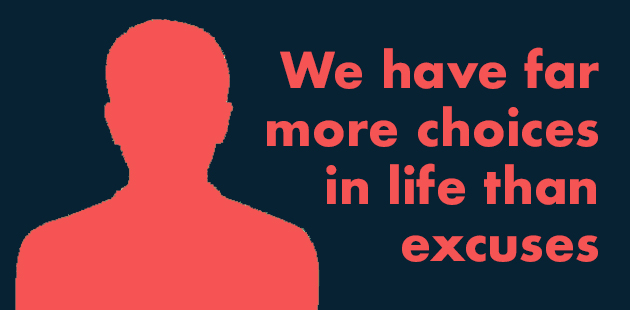Chronic: The Pain We Don’t See, Chapter 19
Top illustration by Tim Forkes
Chapter 19: Normalcy Will Never Be The Same
Wednesday: December 23, 2020
If you have ever been on the doorstep of death and lucky enough to walk away, you are never the same. One of my favorite writers was the late George Sheehan who wrote about running and philosophy. He commented once that the person who climbs a mountain is not the same as the one who descends it.
We all face mountains in our lives. As a lifelong runner and avid cyclist, I have always been drawn to steep climbs. Most tend to avoid them as much as possible, but I am drawn to the suffering they inflict for my willingness to be tested. Once at the top, we are rewarded with an amazing view and joyful descent. We take pride in knowing we just did something most people would never attempt.
During a climb, you must find an inner peace and accept the suffering you are experiencing. Negativity will just weigh you down and eventually break your spirit, causing you to give up. There is nothing worse than the understanding of having been bested because you lacked the inner ability to let go of the greatest force working against you; your mind.

Mountains do not defeat us; we defeat ourselves.
I have been asked what it was like to believe I was thinking my final thoughts. After a driver drove on instead of stopping, I did not feel defeated nearly as much as I realized there was still more to climb. His driving away was nothing more than what cyclists refer to as a false flat; the appearance of being close to the summit only to realize there was more climbing ahead. Either accept it or give up.
Acceptance requires letting go and having faith that whatever lies ahead is still controlled by our thought process. I knew my chances of survival were slim at best, but I was not panicking. I knew the more I fought what I could not physically defeat, the less time I had left. Instead, I calmly laid there and began thinking about all the wonderful things I had in my life. If I was most likely thinking my final thoughts then I was damn sure I was going to be in control of what they were.
My heart felt full as I thought of my family. Their smiles, their laughter, their love would be what I take with me instead of any anger over what was unfolding. As I drifted off from a lack of oxygen to my brain as a result of a collapsed lung, I felt the same weightlessness and out of body sensation I felt in 1982 when I raced through Bidwell Park to a PR. I was at my limit while in such a peaceful state of mind. I felt nothing other than freedom. It must be what birds feel as they effortlessly soar overhead and look down on a world that is often fighting itself. It was at this moment I was saved.
However, being saved and recovering are two very different things. Not only was my body a wreck from all my injuries, my mind had much to process. Five years of physical therapy would help me overcome many of my injuries, but now, more than 13 years after that accident, I find myself still processing emotionally all that happened.
Anger, confusion, and guilt consumed me for a long time. It negatively affected my depression, my family life, and my work. Besides having to make sense of what happened to me, I kept asking myself why did I survive what I was told by doctors I had no business surviving when at the same time, in another hospital, one of my favorite students I ever had was dying from similar injuries from a dirt bike accident?
In the end, I realized I will never know why because life is a random process and not predetermined. I do not believe I was picked to live while a young man with his entire life ahead of him was chosen to die. In both cases, it was just a fluke. Our situations could easily have been reversed and there is no reason for me to beat myself up for our different outcomes.
I share this because as COVID vaccines hopefully knock out a vicious virus that has claimed millions of lives around the globe, countless others will be left as survivors. For those who found themselves on death’s doorstep, life will never be the same. They will never be able to return to who they were as if nothing ever happened.
Many will be left with physical scars left from being intubated. Their lungs, hearts, and other organs may never function the same due to their complications. These problems will, for the most part, remain invisible to those of us who someday may forget which of their friends, family, or colleagues had a bad case, which had a mild case, and which ones were spared all together.
These survivors will also have to process countless emotions. They will be angry at what happened to them and how it changed their life against their wishes. Outbursts, frustration, helplessness, and depression may set in all because they are trying to make sense of something. Their relationships, work, and health may suffer as a result because you do not walk up to the steps of eternity then get turned away and go back to your old self.
For these people, normal will never be the same again just as it is never the same for anyone who must traverse through life suffering from a chronic condition the rest of us cannot see.
I never asked for my depression. I never asked for the pain and fatigue I deal with. And I sure never asked to be brought to the brink of dying only to be saved. However, I was and because I was, the life I have today, the normalcy I enjoy, is not the same as it once was. Then again, when I stop and think about it, nothing is the same. Adapt or die applies to everyone. What matters is not what has happened to us, but how we choose to adapt.
For me, it would take seven years after that accident to hit my lowest point. I was done. Done with the constant physical pain, emotional lows, and the lack of joy in my life. I was finished punishing others as much as I was punishing myself and knew one of two things was going to happen; I was going to get better or I was going to crash through death’s door come hell or high water.
Albert Einstein said, “If you always do what you always did, you will always get what you always got.” Our own personal cycle of life unfolds out of lazy habits because change too often seems overwhelming. Believe me when I say it is not nearly as overwhelming as a constant thick fog of depression controlling your life. It is not as overwhelming as pain so great you can only curl up in a ball and hope to ride it out. It is not as great as fatigue that is so tiring you choose to not eat because you haven’t the energy to fix something as basic as a bowl of cereal.
But change seems pointless without feeling supported and a lack of support just makes you feel as if you do not matter. It is why as we move forward in a post COVID world we remain more mindful of people who suffer from unseen chronic conditions. Our mental health goes a long way toward healing because it is what leads us toward acceptance.

(Tim Forkes)
I know I may never be able to enjoy a life free of the pain and fatigue that hits me. However, thanks to how well TMS has worked for me, mentally, I am alright with this. I no longer fight physically to overcome something. Instead, I am free to accept and enjoy all I have. My list of what I have to be thankful for is far longer than the list of frustrations I have as a result of my pain and fatigue. Knowing this has lifted a huge weight I carried through life for far too long. I relax knowing I have clarity between what I have control over and what I just need to let play out.
If you have been where I have or if you know someone who has, be patient. Some things take time to become clear. Be forgiving. Let go of the past so as to lighten your load moving forward. Be mindful. Your new normal will require constant monitoring and do not take for granted all is well based simply on appearance. We all have cracks and they all need filling from time to time to keep from becoming crevices.
Friday: December 25, 2020
For the first time in my life, I had to work a full day on Christmas. Teaching for 30 years always allowed me the two weeks off for the holidays. Prior to teaching, I was a student for 20 years. Since retiring in 2014, any jobs I have had never required working on Christmas. Today, my new normal included an eight hour shift.
After a full work day in which I began painting the exterior of the motel, I hurt. Pain knows no holiday. It acts up in random ways whenever it wants and I am powerless to prevent it. I could have had the day off and still been hit hard by it. I know because at this time last year, I was about one month into a long stretch in which most days were filled with discomfort that went beyond what anyone would consider normal.
I have been to bed already and here I am, two hours into my night’s slumber, up with pain. This time, it is my elbows and wrists that throb and my fingers that are stiff and achy. A double dose of pain medication along with a muscle relaxant provided little relief so now I must wait out something that has a mind of its own and hope I get back to sleep before too long.
Sleeping with me is not easy. Just ask my wife. Many times, after what I thought was a sound night of sleep, she tells me I must have had a rough night because I kept her awake with my flailing arms or loud moans. My discomfort becomes hers and affects her sleep. Consequently, I often get up in the middle of the night and head out to the couch or recliner. I know I won’t sleep all that well in either one, but if it allows Charlene to sleep then I do not feel so bad.
Maybe it is because my children are all grown and scattered about, but working today was not a big deal. I am fortunate for my current situation. For the others who had to work, they all had to miss out on a day with family and loved ones. Charlene and I enjoyed a quiet early morning and opened our gifts to one another before I headed off for work. She was able to enjoy the day with her daughter and son-in-law while I worked. When I got home, I enjoyed a Zoom Christmas with my kids.
Managing pain, warding off fatigue, and keeping my depression under control are now part of my normal. Just as living in a world where you can have face-to-face conversations with anyone from anywhere on the planet has become normal, so has living with three invisible illnesses. Change is a constant and being able to keep up with it is vital. For so long, I was unable to keep up with these unwanted invisible nemesis. Now, I finally feel as if I am at a point where I can.
I have accepted I may never be able to eliminate what has set up home inside of my body. For now, my depression is under control, but I know it is something that is part of my hard wiring. TMS has allowed me to rewire my brain, but it is too early to know for sure how long it will allow me to live my life knowing there is no fog inside my brain that takes me to dark places. I know I am a depressed person, but for now, I enjoy a depression-free life. If this changes, I know I will seek help immediately rather than believe it is something I can beat on my own.
Pain and fatigue are different beasts. They can hit me individually or in combination. With pain, it can come in many forms, strike me in many places, and can be a result of several factors. Like with my depression, I have finally accepted this is just how my life is and I will likely have to deal with it for the rest of my life. What I have no intention of doing is allowing either one to control me or be my sole identity.
I see people much differently than I used to. Sometimes, I spot a total stranger and can see they are suffering. Outwardly, they appear to be fine, but there might be something in their eyes or the way they carry themselves that tells me right away they hurt in a way that might not be obvious to others. They are struggling to keep others from knowing they hurt, are tired, or feeling alone. Their energy is going entirely toward trying to keep the outside world from knowing just how badly they feel and for the most part, people do not see it. If they do, they do not know how to respond.

There is a great deal of shame that comes with knowing you appear to be fine while knowing inside something is not right. How do you seek help for what cannot be seen? Who do you turn to if there is a stigma that goes with telling loved ones you need help? In a world built on competition, how do you admit to a weakness others may use to gain an advantage?
If someone arrives to work on Monday with a cast on their arm, co-workers will ask what happened and many will offer to help with tasks that may suddenly be difficult. However, showing up on Monday suffering from the misery of a painful flare up of an unseen attacker is different. Sooner or later, some are going to question whether you are a head case or actually dealing with an on-going challenge. Talk about it enough, and people will tune you out because they want to know more about you than just your constant discomfort.
Today, at work, I painted the first floor of one of the wings of rooms that face out toward our pool. The off white colored stucco was faded, its cracks resembling the skin of a reptile. Scuff marks, spills, and little bits of debris were embedded in the walls. By day’s end, those same walls appeared new. A few of our long term residents commented on what a difference my work made. When I finished, I turned my attention to the opposite side of the building and began prepping it for a fresh coat.
I could have laid low today and not done much. The motel was relatively quiet and there were no pressing needs calling for my attention. No one came looking for me and no one would have blamed me if I had just taken advantage of doing as little as possible while having to work on a holiday. Instead, I chose the opposite knowing by the end of my shift I would be hurting. I could have left painting the place to my younger colleague who was off today. I could have used my aches and fatigue as excuses for not doing what I was hired to do.
We have far more choices than we have excuses in life. Ultimately, it was my choice to paint the building even though I knew the chances of a night of discomfort were likely to follow. I refuse to be that person who tells everyone who complains about their job how I would love to work but my doctors tell me not to. I won’t stop working out and using my pain as an excuse for gaining weight and falling out of shape. Pain, fatigue, and depression are parts of my life, but they do not make up my entirety. They are part of an equation that when added up equals who I am. But so is my work ethic, humor, consideration, and countless other things.

(Tim Forkes)
I did not work or hurt today nearly as much as I enjoyed the fullness of what the day offered. It was a day where my wife and I enjoyed watching our five dogs try to open their presents. It was a day of sunshine that included a great conversation with a resident from Florida. It was a day spent with my children. It was a day of accompaniment, joy, and love. The sum of these things all outweigh any discomfort I feel. They bring me energy despite a rough night of sleep last night. Best of all, they fill me with a sense of positivity where once there was little light shining inside me.
Normal is always new. It might take work, but it is work worth doing. Merry Christmas!

Jim is a life long resident of California and retired school teacher with 30 years in public education. Jim earned his BA in History from CSU Chico in 1981 and his MA in Education from Azusa Pacific University in 1994. He is also the author of Teaching The Teacher: Lessons Learned From Teaching. Jim considers himself an equal opportunity pain in the ass to any political party, group, or individual who looks to profit off of hypocrisy. When he is not pointing out the conflicting words and actions of our leaders, the NFL commissioner, or humans in general, he can be found riding his bike for hours on end while pondering his next article. Jim recently moved to Camarillo, CA after being convinced to join the witness protection program.

